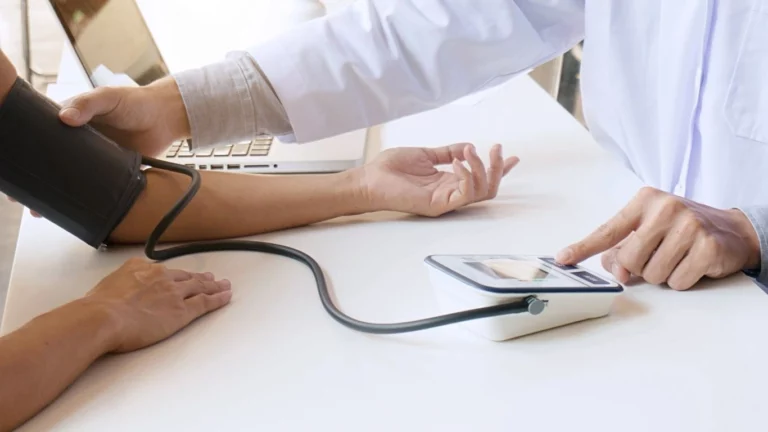7 Startling Effects of High Blood Pressure on Your Brain You Need to Know
High blood pressure, or hypertension, is often called the “silent killer” because it usually shows no symptoms until it causes severe health problems. One of the most significant consequences of long-term high blood pressure is its impact on the brain. As a hypertension expert, I’ve seen firsthand how hypertension can lead to serious neurological issues, and today I want to dive deep into how the effects of high blood pressure on the brain can manifest, the risks involved, and why it’s crucial to manage this condition before irreversible damage occurs.
The Link Between Hypertension and Brain Health
When you think of high blood pressure, you might immediately think of the heart, but the brain is just as vulnerable. The relationship between hypertension and the brain is not something to take lightly. Over time, high blood pressure can damage the blood vessels in the brain, making it harder for blood to flow efficiently. This can lead to a series of complications, ranging from mild cognitive decline to more serious issues like stroke.
In my years of experience, I’ve witnessed patients who didn’t realize the quiet damage hypertension was doing to their brain until it was too late. The effect of high blood pressure on the brain can be subtle at first, but it tends to snowball if left unchecked. So, let’s break it down a bit more—what exactly happens in the brain when high blood pressure takes its toll?
How High Blood Pressure Affects the Blood Vessels in the Brain
The brain relies on a constant supply of oxygen-rich blood to function properly. The blood vessels in the brain are delicate, and over time, high blood pressure can cause them to become narrower and stiffer, which reduces blood flow. This can lead to a condition known as vascular dementia, a type of cognitive decline that results from damage to the brain’s blood vessels.
Imagine trying to water a plant with a hose that’s slowly being pinched off. At first, the plant might not show any signs of distress, but over time, it starts to wilt as the water supply dwindles. That’s essentially what happens in the brain when blood flow is compromised by high blood pressure. The affected areas of the brain can begin to shrink, and the neurons (brain cells) lose their ability to function properly. The result? Cognitive issues like memory loss, difficulty concentrating, and, in severe cases, dementia.
Stroke: A Major Risk of Hypertension
One of the most dangerous effects of high blood pressure on the brain is the increased risk of stroke. Hypertension is the leading cause of both ischemic and hemorrhagic strokes. When blood pressure is consistently high, it weakens the blood vessels, increasing the likelihood that one will burst or become blocked. An ischemic stroke occurs when a blood clot blocks blood flow to part of the brain, while a hemorrhagic stroke happens when a blood vessel bursts and causes bleeding in the brain.
Stroke symptoms can be sudden and severe. Some common signs include numbness or weakness in the face, arm, or leg, trouble speaking or understanding speech, and severe headaches. I’ve worked with many patients who didn’t realize how crucial it was to control their blood pressure, only to face the aftermath of a stroke. This is why managing hypertension is vital for brain health.

Effects on Cognitive Function and Mental Clarity
High blood pressure can cause what’s known as cognitive dysfunction, which impacts memory, decision-making, and concentration. This is often referred to as “brain fog.” Imagine trying to solve a simple math problem but feeling like your brain just can’t process the numbers. That’s how many people with untreated hypertension describe the cognitive effects they experience.
In my clinical practice, I’ve seen patients who were once sharp and quick-witted struggle with simple tasks as a result of high blood pressure. Their ability to think clearly can decrease, and over time, it can affect their quality of life. Some studies even show that those with long-term hypertension may be at greater risk for developing dementia. This is another reason why managing high blood pressure isn’t just about preventing a stroke or heart disease—it’s about protecting your mental well-being.
The Silent Impact: Hypertension and Mental Health
Beyond the physical toll on the brain, high blood pressure can also affect mental health. The stress that comes from living with a chronic condition like hypertension can lead to anxiety and depression. I often see this in patients who feel overwhelmed by their diagnosis, and in some cases, the mental health issues can exacerbate the symptoms of hypertension.
In my experience, addressing both the physical and mental aspects of high blood pressure is crucial. When a patient feels supported emotionally, they are more likely to stick with their treatment plan and take proactive steps to control their blood pressure. Managing stress, getting adequate sleep, and eating a balanced diet are all important factors that contribute to brain health, and these things should be part of the conversation when treating hypertension.
Managing High Blood Pressure to Protect Your Brain
The good news is that high blood pressure is manageable, and with the right treatment, you can protect your brain and reduce the risk of complications. Lifestyle changes, medications, and regular monitoring can help control blood pressure and reduce the risk of cognitive decline, stroke, and other neurological issues. In fact, the earlier you take action, the better the outcomes.
- Eat a heart-healthy diet – A diet rich in fruits, vegetables, whole grains, and lean proteins can help keep blood pressure in check.
- Exercise regularly – Physical activity strengthens the heart and improves circulation, which helps manage blood pressure.
- Monitor your blood pressure – Regularly checking your blood pressure allows you to catch any issues early.
- Take prescribed medications – If your doctor recommends medication, be sure to take it as directed to keep your blood pressure under control.

Remember, high blood pressure doesn’t have to be a life sentence. With the right care and lifestyle adjustments, you can protect your brain and live a long, healthy life. But the key is to start early, stay consistent, and don’t ignore the warning signs. Your brain will thank you for it!
Continuing from where we left off, we’ve already discussed how high blood pressure can harm the blood vessels in your brain and lead to devastating conditions like stroke, dementia, and cognitive decline. But the effects of high blood pressure on the brain don’t stop there. In fact, there are other ways that hypertension can affect your mental and neurological health, and today, I’m diving deeper into how high blood pressure can impact brain function in ways that are often overlooked.
The Hidden Threat: Hypertension and the Blood-Brain Barrier
One of the less commonly discussed effects of high blood pressure is its impact on the blood-brain barrier (BBB). The blood-brain barrier is a selective permeability membrane that protects the brain from harmful substances in the blood. In a healthy state, it allows essential nutrients and oxygen to pass through, while blocking toxins and other dangerous materials.
But when blood pressure is consistently high, this barrier can weaken. The pressure of the blood flowing through the vessels forces the cells of the BBB apart, which can lead to unwanted substances entering the brain. This is a major concern because it opens the door for inflammatory molecules, toxins, and even pathogens to cause damage to the brain’s sensitive tissue.
As a hypertension expert, I’ve seen cases where patients with poorly managed hypertension start experiencing changes in their mental clarity, mood, and cognitive abilities. This could very well be linked to the breach of the blood-brain barrier. Once this happens, the brain can become inflamed, which disrupts its normal function and contributes to neurological damage.

Memory Loss and Difficulty with Learning: The Silent Cognitive Decline
When hypertension goes unchecked, its slow impact on the brain can cause subtle but concerning changes in memory and the ability to learn new information. I’ve had many patients in my practice express frustration at not being able to remember things like they once did—simple names, places, or even what they had for breakfast. These small lapses, while they may seem insignificant at first, can be a sign of more significant changes occurring in the brain.
The hippocampus, the part of the brain responsible for forming new memories and learning, is particularly vulnerable to the effects of hypertension. Over time, if blood flow to this area is restricted due to high blood pressure, it can lead to a decline in its function. When the hippocampus isn’t working at full capacity, memory retention and learning abilities can suffer. This can impact everything from daily life and work performance to social interactions.
As someone who has worked with countless patients dealing with high blood pressure, I can’t stress enough how crucial it is to stay on top of your blood pressure management. Addressing hypertension early can prevent much of the damage to the brain’s memory-related areas.
The Link Between High Blood Pressure and Mental Health Disorders
We’ve already touched on how hypertension can lead to cognitive decline, but what about mental health? Well, the effects of high blood pressure don’t just stop at memory problems—they can also contribute to mental health issues like anxiety, depression, and even mood swings. I’ve often seen patients with high blood pressure feel overwhelmed, frustrated, and isolated as they struggle with the emotional and psychological toll of their condition.
Research has shown that high blood pressure can increase the risk of developing mental health issues. The chronic stress that comes with living with hypertension, combined with the direct impact on the brain, can lead to feelings of sadness, hopelessness, and heightened anxiety. It’s a vicious cycle: high blood pressure exacerbates mental health problems, and these mental health issues can, in turn, worsen hypertension. I’ve had patients tell me how the constant worry about their blood pressure has started to affect their overall sense of well-being.
How Hypertension Affects the Brain’s Circulatory System
Another critical aspect to consider when it comes to high blood pressure’s effect on the brain is its impact on the brain’s circulatory system. High blood pressure can lead to the thickening of the walls of the arteries in the brain, which can ultimately reduce the flow of oxygen-rich blood to brain cells. This is a major factor in both stroke and cognitive decline.
As someone who works with patients daily, I always remind them that their brain needs a steady and adequate supply of oxygen to function properly. If high blood pressure reduces blood flow to critical areas of the brain, neurons in those regions begin to die. This can lead to functional impairments such as difficulty in movement coordination, speech problems, and even vision disturbances, depending on which areas of the brain are affected.
It’s essential to understand that brain cells, like all cells in the body, rely on oxygen to survive. When their oxygen supply is compromised by high blood pressure, they begin to deteriorate. This can result in long-term neurological damage that could be irreversible if not addressed early on.
The Role of Medication in Protecting the Brain
Thankfully, managing high blood pressure through medication can be an effective way to protect the brain from the devastating effects of hypertension. In my practice, I work closely with patients to determine the best course of action, whether it’s lifestyle changes, medications, or a combination of both. There are several classes of blood pressure medications, such as ACE inhibitors, beta-blockers, and calcium channel blockers, which can help regulate blood pressure and prevent further damage to the brain.
As I always tell my patients, it’s crucial to work with your healthcare provider to find the right medication for your individual needs. One medication might work wonders for one person, while another might not have the same effect. The key is consistency and regular follow-up appointments to monitor your blood pressure and adjust treatment as necessary.

Prevention is Key: Tips for Protecting Your Brain from Hypertension
While we’ve explored some of the severe consequences of untreated high blood pressure on the brain, the good news is that prevention and early intervention can go a long way in protecting your brain from damage. Here are a few practical tips I always share with my patients to help manage their blood pressure and safeguard their brain health:
- Monitor Your Blood Pressure Regularly – Stay proactive about your health by regularly checking your blood pressure, especially if you’re at higher risk.
- Exercise Daily – Physical activity helps lower blood pressure and improves circulation, benefiting both the heart and brain.
- Reduce Stress – Try relaxation techniques like meditation or deep breathing to keep your stress levels under control.
- Eat a Brain-Healthy Diet – Focus on foods that promote heart and brain health, such as leafy greens, berries, and omega-3 fatty acids.
- Get Enough Sleep – Quality sleep is essential for both mental health and maintaining healthy blood pressure levels.
Remember, it’s never too late to start making changes to improve your health. By taking action now, you can protect your brain, reduce the risk of serious complications, and live a long, fulfilling life.
Now that we’ve covered the significant effects of high blood pressure on the brain and how to manage and prevent its damage, let’s delve deeper into real-world examples and provide some key takeaways. Understanding the practical application of these insights can help you take charge of your health and protect your brain from the silent damage caused by hypertension.
Case Studies & Real-Life Examples
To really drive home the point, let me share a couple of case studies that have stuck with me over the years. These examples reflect the challenges many people face when dealing with high blood pressure and how making changes can ultimately protect brain health.
Case Study 1: John’s Journey with Stroke Prevention
John, a 52-year-old patient, came to see me several years ago with a history of high blood pressure. He had been diagnosed with hypertension in his mid-40s but never took it seriously. By the time he came to me, his blood pressure was dangerously high, and he had been experiencing frequent headaches and occasional dizziness. Despite feeling fine most of the time, his brain was silently suffering from the effects of poor circulation.
After a thorough evaluation, we discovered that the walls of his blood vessels were thickening, reducing blood flow to critical areas of his brain. This could have led to a stroke if left unchecked. We immediately implemented a treatment plan that included medication, lifestyle changes like diet and exercise, and stress management techniques. Fast forward to today, John’s blood pressure is under control, and he is no longer at risk of a stroke. His cognitive function has improved, and his quality of life is much better.
Case Study 2: Maria’s Battle with Cognitive Decline
Maria, a 61-year-old woman, had noticed subtle changes in her memory. She struggled to remember the names of her friends and had difficulty concentrating during conversations. She came to me because she was worried about developing Alzheimer’s disease. After reviewing her medical history, I found that Maria had been living with high blood pressure for nearly two decades without proper management. The long-term effects had already started to show in her brain’s cognitive abilities.
We worked together to lower her blood pressure through a combination of medication, a brain-healthy diet, and regular mental exercises. Over time, Maria’s cognitive abilities improved, and the “brain fog” she had been experiencing lifted. Though it took time, her commitment to managing her hypertension proved to be a game-changer for her brain health.

Key Takeaways: What You Need to Remember
If there’s one thing you take away from this article, it’s that high blood pressure is a serious risk to your brain health. While it may not show symptoms early on, the damage it causes can be severe and irreversible. But with the right approach, you can protect your brain and reduce the risk of complications like stroke, cognitive decline, and mental health disorders. Here are the key takeaways:
- Monitor your blood pressure regularly – Keeping an eye on your blood pressure is the first step in preventing brain damage.
- Manage stress – Chronic stress exacerbates hypertension and can damage your brain, so finding ways to relax is crucial.
- Exercise and eat a healthy diet – Regular physical activity and a diet rich in fruits, vegetables, and lean proteins will help keep your blood pressure in check.
- Medications are essential – If prescribed, taking medications as directed is a key part of managing hypertension.
- Early intervention matters – The sooner you take action, the better the outcomes for your brain health.
5 FAQs About Hypertension and Brain Health
Let’s address some of the most common questions I get asked about hypertension and its effects on the brain. If you’re unsure about something, chances are others have the same questions too.
1. Can high blood pressure cause memory loss?
Yes, untreated high blood pressure can cause damage to the brain, leading to cognitive issues like memory loss. The brain’s blood vessels can become stiff and narrow, reducing blood flow to critical areas involved in memory and learning.
2. How can I prevent stroke caused by hypertension?
Preventing a stroke involves managing your blood pressure effectively through medications, lifestyle changes, and regular check-ups with your doctor. It’s also important to avoid smoking, limit alcohol intake, and manage your cholesterol levels.
Symptoms may include difficulty concentrating, memory lapses, confusion, headaches, dizziness, and, in severe cases, stroke-like symptoms. If you notice any of these signs, it’s important to seek medical advice immediately.
4. How long does it take to see improvements in brain health after controlling blood pressure?
Improvements can vary from person to person, but many people start to feel better within a few months of controlling their blood pressure. However, it may take longer to see significant changes in cognitive function, especially if there has already been brain damage.
5. Is it too late to reverse brain damage from hypertension?
While some damage may be irreversible, taking action to control your blood pressure can stop further damage and improve your brain health. Early intervention is key to minimizing the effects of hypertension.
Bonus: Additional Resources or DIY Tips
As you embark on your journey to better brain health and blood pressure management, here are some extra resources and tips to help you along the way:
- Exercise videos and routines – Look for online programs that provide heart-healthy workouts, such as walking, swimming, or yoga.
- Healthy meal planning tools – Use apps or websites to help you create brain-boosting, low-sodium meal plans that support healthy blood pressure.
- Mindfulness and meditation apps – Practicing mindfulness regularly can help reduce stress and lower blood pressure over time.
Appendix: References, Disclaimer, and Call to Action
For further reading on hypertension and brain health, I recommend checking out reputable medical sources such as the American Heart Association (AHA) and the Mayo Clinic. It’s important to always consult with your healthcare provider before making any changes to your treatment plan.
Disclaimer: This article is for informational purposes only and is not intended as medical advice. Always consult with your doctor before making changes to your health regimen.
If you’re struggling with high blood pressure, take the first step today! Book an appointment with a healthcare provider to discuss your blood pressure management plan and protect your brain health.

Dr. Gwenna Aazee is a board-certified Internal Medicine Physician with a special focus on hypertension management, chronic disease prevention, and patient education. With years of experience in both clinical practice and medical writing, she’s passionate about turning evidence-based medicine into accessible, actionable advice. Through her work at Healthusias.com, Dr. Aazee empowers readers to take charge of their health with confidence and clarity. Off the clock, she enjoys deep dives into nutrition research, long walks with her rescue pup, and simplifying medical jargon one article at a time.






